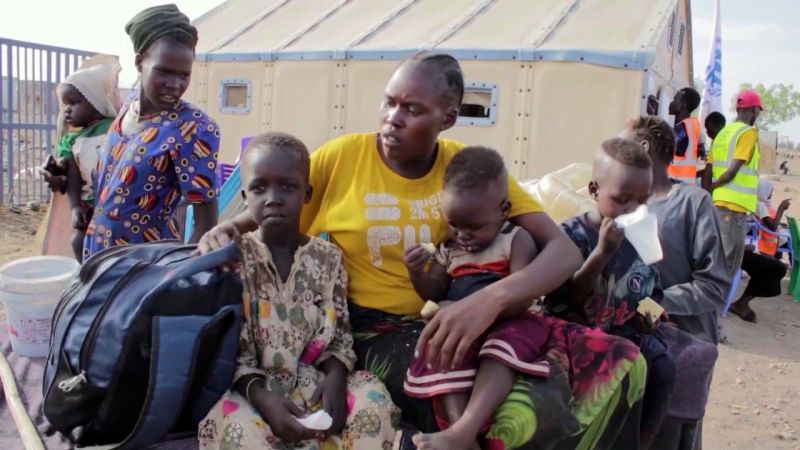The exacerbating famine crisis in the war-torn Darfur has left the UN aghast: reports indicate that residents of the Sudanese region are being forced to consume grass and peanut shells as substitutes for nourishment. Such extreme survivability measures underscore the sheer gravity of the hunger crisis, escalating around what has been a long-persisting battle ground of ethnic violence and discord.
The crisis in Darfur, the western region of Sudan, commenced with a civil war in 2003, rooted in tribal conflicts and political strife. Fast forward to the present day and the human toll is nothing short of devastating, with millions displaced and countless lives lost. Today, the region is bearing witness to an absolute collapse of its social structure and a severe famine that has attracted global attention.
The significant economic decline Sudan has experienced as a war-torn country, accompanied by waves of inflation, has left normal employment opportunities and steady income sources almost nonexistent. The situation is further exacerbated by a devastating locust invasion and ongoing COVID-19 impacts, which have unarguably worsened the food security situation. Coupled with the lack of foreign aid due to political situations, residents of Darfur are left with limited options for sustenance.
Reports emerging from the region are increasingly haunting. Community members are resorting to eating wild grass, a measure usually taken by grazing animals rather than humans, in order to sustain themselves. Alongside this, they are also consuming peanut shells, which, while having minimal nutritional value, provide a meager solution for their ongoing fight against hunger.
A large ratio of the region’s population depends on farming and herding for survival. Still, the ongoing conflict has forced many from their land, detaching them from their livelihoods, and thereafter thrusting them into a burgeoning cycle of hunger and poverty. The lack of sustainable agricultural activities means there’s a deficiency in homegrown crops and a reduced supply of cattle and livestock products. This, in turn, has resulted in a nutritional crisis now challenging the region.
This extreme food scarcity has already led to critical weight-loss and malnutrition, particularly rampant amongst children. Medical assistance and nutritional supplement support have proven woefully inadequate given the magnitude of the crisis, and in some cases, unreachable due to the incessant conflict.
Furthermore, international support to Sudan has largely been insufficient and sporadic, with many nations reluctant to aid due to the country’s complex political climate, further escalating the humanitarian crisis. Despite numerous calls-to-action from NGOs and humanitarian organizations, the international response remains lackluster.
The UN officials have repeatedly introduced emergency aid to Sudanese regions like Darfur, but the scale of crisis requires more than just a temporary fix. It needs sustainable, long-term solutions to end the cycle of conflict, displacement, and hunger.
This dire situation in Darfur is a testament to the catastrophic fallout of war, particularly at the intersection of conflict and malnutrition. Systemic changes and broad international support are needed to remedy this crisis where people are driven to such desperate measures as eating grass and peanut shells to survive. The global community must look beyond the political complexity and make a concerted effort to ease human suffering in the region.




